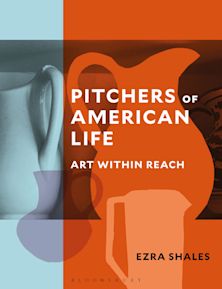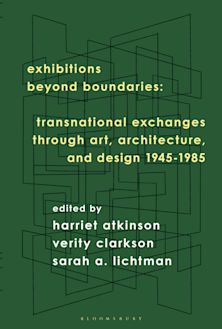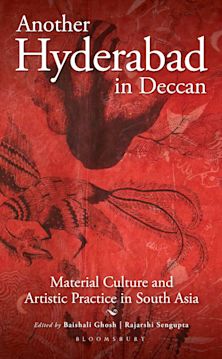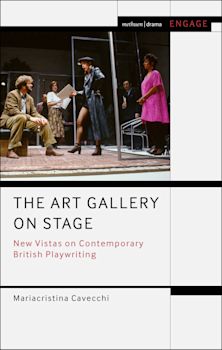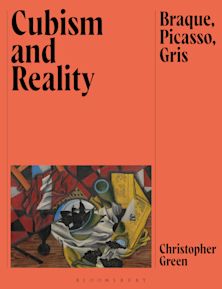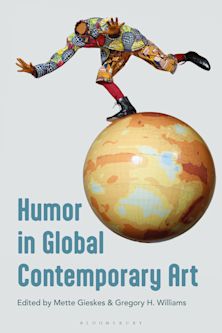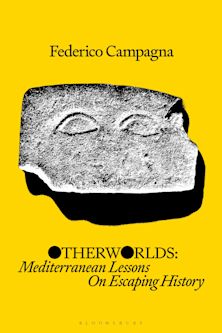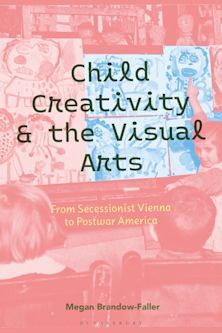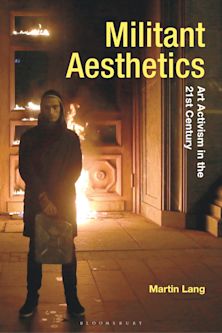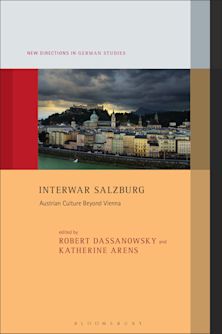Ethical Materialities in Art and Moving Images
Ethical Materialities in Art and Moving Images
Payment for this pre-order will be taken when the item becomes available
- Delivery and returns info
-
Free CA delivery on orders $40 or over
Description
Starting from the premise that after modernism and postmodernism – in the Anthropocene – an artwork cannot rest upon its separation from the planet, this volume develops new ethical practice and thought with respect to art, philosophy and moving images. Practitioners and theorists examine how the relations between the ethical and the material figure in a context in which a dearth of ethical practice and thought has caused the materialities of the Anthropocene and the climate catastrophe.
Ethics are generally regarded as constituted through immaterial relations guided by moral imperatives. By contrast, this volume argues that the singular ethicalities that are manifested in a work cannot be captured by abstract ethics. The explorations of the ethical here are not prescriptive, but creative. Through artistic and philosophical thought and practice, the contributions move beyond the division between an active practice of ethics and a contemplative theory of aesthetics. They ask what ethicalities and materialities are at play in the relations between the artist, the art, their worlds and the planet after new materialism and posthumanism.
Rather than transcending the ethical through the material or the material through the ethical, the contributions articulate the singular relations between them and consider the inter- and intra-active ethical and material relations of art and images in biodiverse environments. They suggest that to bring out the ethical dimensions of the material and the material dimension of the ethical – without identifying one with the other –is a responsibility of art and images.
Table of Contents
List of Illustrations
List of Contributors
Introduction: Ethical Materialities and Material Ethicalities, Silke Panse (Reader in Film, Art and Philosophy, University for the Creative Arts, UK)
Part One: Creative Ethics and the Materialities of Affectual Relations
1. Spinoza's Affective Ethics: Causing, Not Making, Silke Panse (Reader in Film, Art and Philosophy, University for the Creative Arts, UK)
2. The Power of Being Affected, Mikhail Lylov (Artist and Curator, Germany)
3. Why I find it Unethical to Write about Myself as an Artist, Mike Marshall (Artist, University for the Creative Arts, UK)
4. Ideal Work Conditions: Reviving Felix Gonzalez-Torres's Politics of Labor and Care, Lauren van Haaften-Schick (Art Historian and Curator, Andrew W. Mellon Postdoctoral Fellow, Wesleyan University, USA)
Part Two: Painting beyond the Frame, between Humans and across Species
5. Ethical Issues with Small Abstract Paintings, Joan Key (Painter and Writer, UK)
6. Peasants in the Artist's Studio: Ethics in Cézanne's Paintings of Provençal Labourers, Jon Kear (Independent Art Historian and Author, Italy and UK)
7. Ant-ic Actions, Formica's Forms: An Experiential Exploration of Art with Ants, Fiona MacDonald (Artist, Feral Practice, UK)
Part Three: More-than-Moving-Images
8. Becoming Extinct (Wild Grass): Exploring More-than-Human Temporalities in Russian Steppes, Elke Marhöfer (Filmmaker and Artist, Italy and Germany)
9. Onscreen Pleasures and Off-Screen Guilt: Minimizing Ecological Erasure and Material Complicity in Moving-Image Art, Erin Espelie (Filmmaker and Associate Professor, University of Colorado Boulder, USA)
10. Fearful Symmetry, Phillip Warnell (Filmmaker and Associate Professor, University of Lincoln, UK)
Index
Product details
| Published | Jul 23 2026 |
|---|---|
| Format | Paperback |
| Edition | 1st |
| Extent | 304 |
| ISBN | 9781350427181 |
| Imprint | Bloomsbury Visual Arts |
| Illustrations | 19 bw illus |
| Dimensions | 234 x 156 mm |
| Publisher | Bloomsbury Publishing |
Reviews

ONLINE RESOURCES
Bloomsbury Collections
This book is available on Bloomsbury Collections where your library has access.













